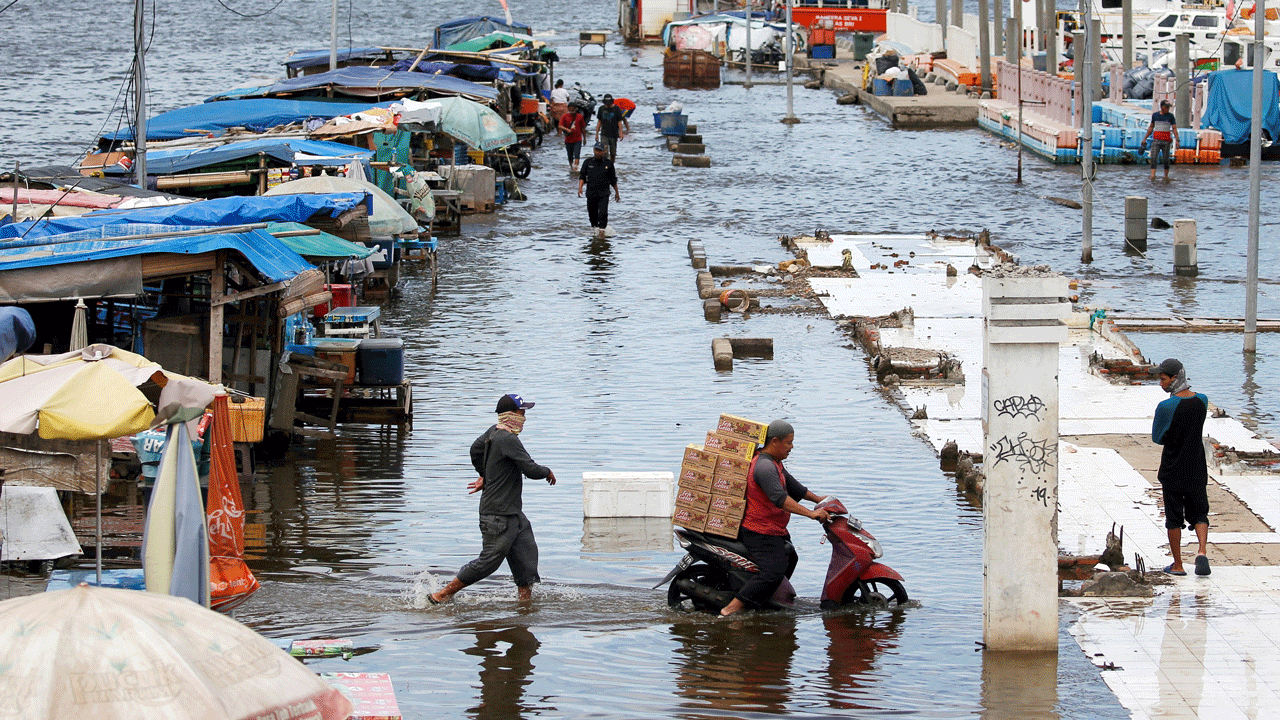
COP27: resumption of US-China climate dialogue a step in the right direction but progress could be slow, analysts say
- The US and China plan to resume cooperation on climate change following a meeting between Joe Biden and Xi Jinping in Bali
- Negotiators from 193 nations at the COP27 summit in Egypt are yet to make any real progress as rich and poor nations remain deadlocked on key issues
The US and China agreeing to resume cooperation on tackling climate change has infused the global climate summit with positivity amid lacklustre progress, but it is far from clear that this would lead to real results anytime soon because of geopolitical tensions, analysts say.
The US and China will resume cooperation on climate change, the White House said in a statement on Monday, after a meeting between President Xi Jinping and President Joe Biden in Bali, Indonesia.
“The biggest outcome out of this news is hopefully that it will energise the negotiations between other parties,” said Jeffrey Hung Oi-shing, CEO of green group Friends of the Earth Hong Kong. “The world’s two largest carbon-emitting countries must cooperate, or at least maintain a [semblance] of cooperation, to unite other world leaders against climate change.”
Negotiators from 193 nations that signed the Paris Agreement in 2015 are in Sharm el-Sheikh, Egypt, for the COP27 summit to iron out a globally accepted undertaking to push forward efforts to reduce greenhouse gas emissions so that global warming can be kept within 1.5 degrees Celsius, and help vulnerable nations adapt to more frequent extreme climate events.
While the halfway mark of the two-week summit has passed, developing and developed nations remain deadlocked on key issues such as cross-country carbon market collaborations and compensation for loss and damage from extreme climate events.
“Even if the readouts indicate formal US-China climate talks could resume, it is unclear what the next steps are,” said Qin Yan, the lead carbon analyst at data provider Refinitiv. “But it is quite clear that the two sides will be more actively engaged in dialogues.”
The political stance of Beijing and Washington, not just technical opportunities, will ultimately play a major role in determining the outcome of climate talks, said Bernice Lee, a research director at London-based policy institute Chatham House.
China ending coal use crucial for world to avoid climate change impact: IEA
“In theory this thaw could pave the way for many new or existing areas of cooperation,” she said. “But until there are clear mandates on both sides it remains unclear.”
The US easing restrictions against cost-competitive Chinese low-carbon-energy equipment would be a good start, since it will bring decarbonisation benefit quickly, some analysts argued.
“The simplest way for cooperation to resume is for the US to withdraw limits imposed on Chinese windpower equipment, solar panels and electric batteries into its market,” said Lin Boqiang, dean of Xiamen University’s China Institute for Studies in Energy Policy. “It can immediately accelerate US carbon emission reduction.”
The US has erected multiple trade barriers in the clean energy sector, linking them to human rights violations in China and energy security issues.
Climate change is threatening our health and forcing insurers to adapt
Between June and October, US customs officials seized more than 1,050 shipments of solar energy equipment worth hundreds of millions of dollars under a new law that banned imports from China’s Xinjiang Uygur autonomous region because of alleged use of slave labour, Reuters reported on Friday.
This year, US legislators also passed the Inflation Reduction Act, under which government funding will support domestic production of materials used in electric vehicle and reduce imports.
“This is not helpful as China plays such a large part in the global supply chain,” said Sanford Bernstein senior analyst Neil Beveridge. “By shutting China out, it will slow down US [decarbonisation].”
The world needs to slash emissions of methane, the second-biggest source of greenhouse gas pollution and 29 times more potent in trapping heat in the atmosphere than carbon dioxide, by at least 30 per cent by 2030 to contain global warming within 1.5 degrees to avert disastrous climate change consequences, according to the United Nations.
The US, which launched a methane reduction programme a year ago, is among 130 nations that have signed up to the Global Methane Pledge to voluntarily cut emissions. China is not yet a signatory.
Last week, China’s top climate envoy, Xie Zhenhua, said Beijing has formulated a national strategy to reduce methane emissions.
The strategy will focus on the energy, agriculture and waste management sectors, he said, but did not say how it plans to reduce methane emissions in coal mining, which accounts for the bulk of the emissions.
China would require new technologies and financing to help it meet its goals, Xie said.
“Resuming climate contacts will help prevent the worst case scenario – a US-China climate decoupling,” said Li Shuo, a senior climate and energy policy officer at Greenpeace East Asia.
“Now that the two sides can talk, they also need to find ways to lead the UN process at COP27 as negotiations enter the end game in Sharm el-Sheikh.”




